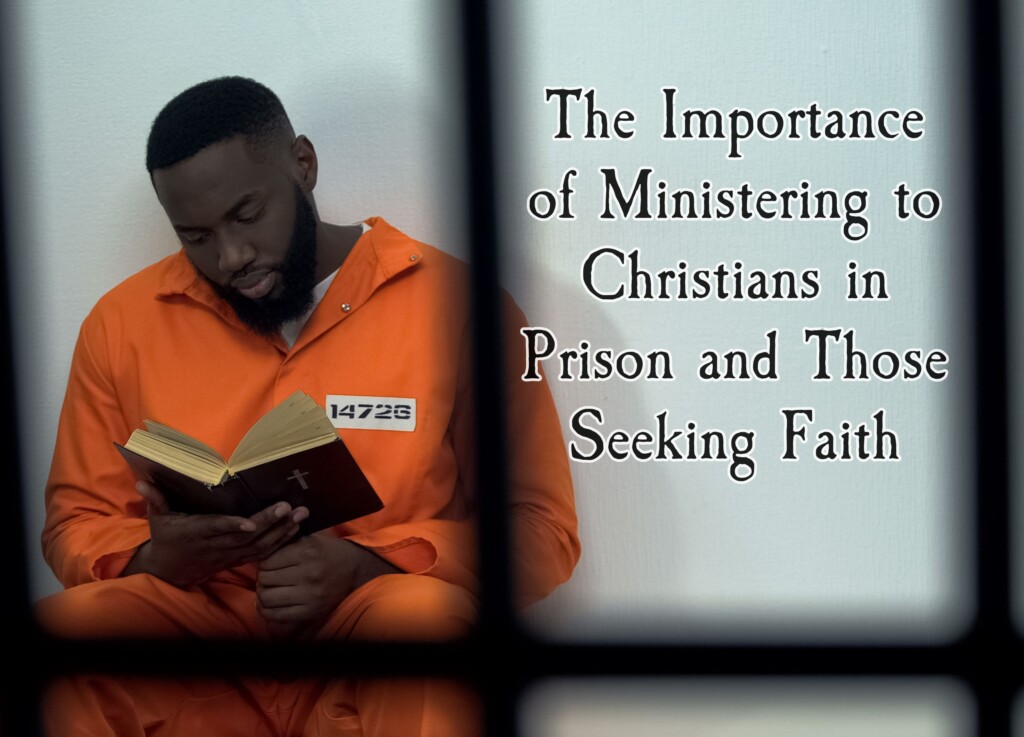In a society that often stigmatizes and marginalizes those who are incarcerated, it’s easy to overlook the spiritual needs of prisoners. However, the Bible teaches us the importance of reaching out to those who are in prison. In Matthew 25:36 (NKJV), Jesus says, “I was in prison and you came to Me.” This underscores the Christian duty to minister to those who are behind bars, including those who are seeking to become Christians.
Why We Should Help
- Spiritual Transformation: Prison can be a place where people are open to change, making it an opportune setting for spiritual transformation.
- Breaking the Cycle: Many prisoners come from difficult backgrounds and have never been exposed to the teachings of Christ. Introducing them to Christian principles can be a step toward breaking the cycle of crime and recidivism.
- Human Dignity: Every person is made in the image of God and deserves to be treated with dignity and respect, regardless of their past mistakes.
- Community Building: When prisoners convert to Christianity, they often become positive influences within the prison community. This can lead to a safer and more rehabilitative environment.
- Preparation for Reentry: Spiritual growth and community support can prepare inmates for a more successful reentry into society, reducing the likelihood of them returning to prison.

How to Help
- Prison Ministry Programs: Consider volunteering with a prison ministry. These programs often offer Bible studies, worship services, and one-on-one mentoring.
- Correspondence: Many organizations facilitate letter-writing to inmates. This can be a powerful way to offer emotional and spiritual support.
- Donations: Books, Bibles, and other Christian literature are always in demand in prisons. Consider donating these resources or contributing to a fund that provides them.
- Prayer: Never underestimate the power of prayer. Pray for the spiritual, emotional, and physical well-being of prisoners.
- Advocacy: Use your voice to advocate for prison reform and better rehabilitation services, including spiritual programs
The Biblical Mandate for Prison Ministry
The Bible is clear about the Christian responsibility to care for prisoners. In Hebrews 13:3 (NKJV), it says, “Remember the prisoners as if chained with them—those who are mistreated—since you yourselves are in the body also.” This verse not only calls us to empathize with those in prison but also to take action. It’s not a suggestion; it’s a command.
The Psychological Impact of Incarceration
Being in prison is a psychologically taxing experience. The isolation, the lack of freedom, and the constant tension can take a toll on anyone’s mental health. This is where the teachings of Christ can offer solace and hope. The Bible teaches us about forgiveness, redemption, and the possibility of a new life, messages that can be incredibly powerful for someone who feels trapped by their past decisions.
The Social Stigma and Its Consequences
Inmates often face social stigmatization, both inside and outside prison. This can make reintegration into society extremely difficult, leading to a vicious cycle of reoffending and imprisonment. The Christian community can play a significant role in breaking this cycle. By offering a message of unconditional love and acceptance, we can help prisoners see themselves not as outcasts, but as children of God.
The Family Angle
The impact of incarceration isn’t limited to the individual; it also affects families. Children of incarcerated parents are more likely to struggle with mental health issues and are at a higher risk of entering the criminal justice system themselves. Christian organizations can offer support to these families, providing emotional and spiritual guidance.
Skill Building and Rehabilitation
While spiritual guidance is crucial, practical skills are also necessary for reintegration into society. Many Christian organizations offer educational programs in prisons, teaching skills that inmates can use once they’re released. This not only aids in rehabilitation but also gives them a sense of purpose.
The Power of Testimonies
One of the most impactful ways to minister to prisoners is through personal testimonies. Hearing stories of people who have been in their shoes and have found redemption can be incredibly inspiring. It offers tangible proof that change is possible.
Legal Support and Advocacy
Christians are also called to fight for justice. This can mean advocating for fair treatment within the legal system or even providing legal support for those who can’t afford it. Organizations like the Innocence Project have exonerated numerous individuals who were wrongly convicted, and faith-based legal aid services help ensure that everyone has a fair shot at justice.
The Long-Term Commitment
Ministering to prisoners isn’t a one-time event; it’s a long-term commitment. It involves ongoing support, both while the individual is in prison and after they’re released. This could mean helping them find a job, secure housing, or continue their spiritual education.
The call to minister to prisoners is a multifaceted endeavor that goes beyond mere charity. It’s a complex, long-term commitment that requires emotional, spiritual, and sometimes even financial investment. But the rewards, both earthly and heavenly, are well worth the effort. By reaching out to this marginalized group, we’re not just making a difference in their lives; we’re fulfilling a divine mandate. And in doing so, we’re enriching our own spiritual journey, learning the true meaning of Christ’s teachings on compassion, mercy, and unconditional love.
As an Amazon Associate we earn from qualifying purchases through some links in our articles.



